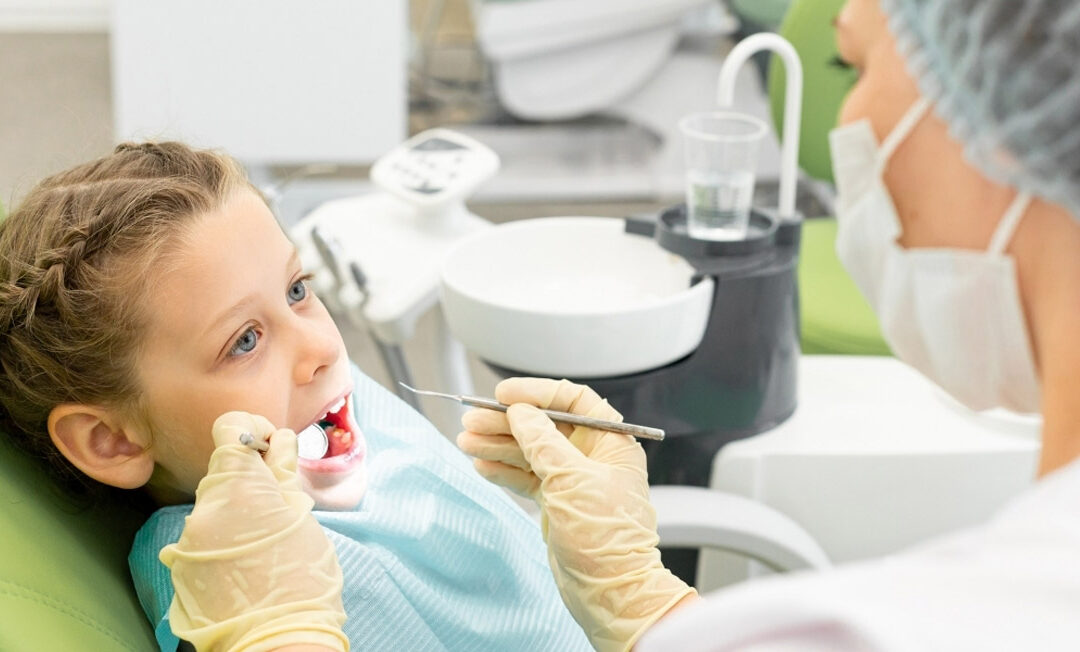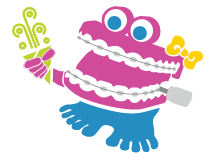If your child chips or accidentally knocks out a tooth, acting quickly is very important. Dr. Kimberly has an emergency hotline to call (843.284.6497) even outside of operating hours to make sure that everything can be done to save the tooth, prevent infection, and minimize any permanent damage.
Call your dentist first rather than the emergency department as they already know your son or daughter’s dental history and hospitals don’t always have dentist staff on call to provide instruction. Your dentist will advise you as to whether you need to come in immediately or simply schedule an appointment for the very near future. This will be dependent on the severity of the accident and whether the nerve or root has been exposed.
Any tooth trauma needs to be treated properly and without delay so that teeth can be saved and nerve damage and other lasting consequences can be avoided.

If the tooth is chipped
Children are prone to grind their teeth generally because they have new teeth coming in. The changes and discomfort happening in their mouths lead them to clench their jaw muscles and grind their teeth in a subconscious attempt to relieve some of the tension. Most kids outgrow this habit once they’ve lost their baby teeth and their permanent teeth have fully come in. For this reason Dr. Kimberly doesn’t typically intervene while they are in the middle of this transition. Your child’s age and whether they have all of their permanent teeth are determining factors when considering treatment.
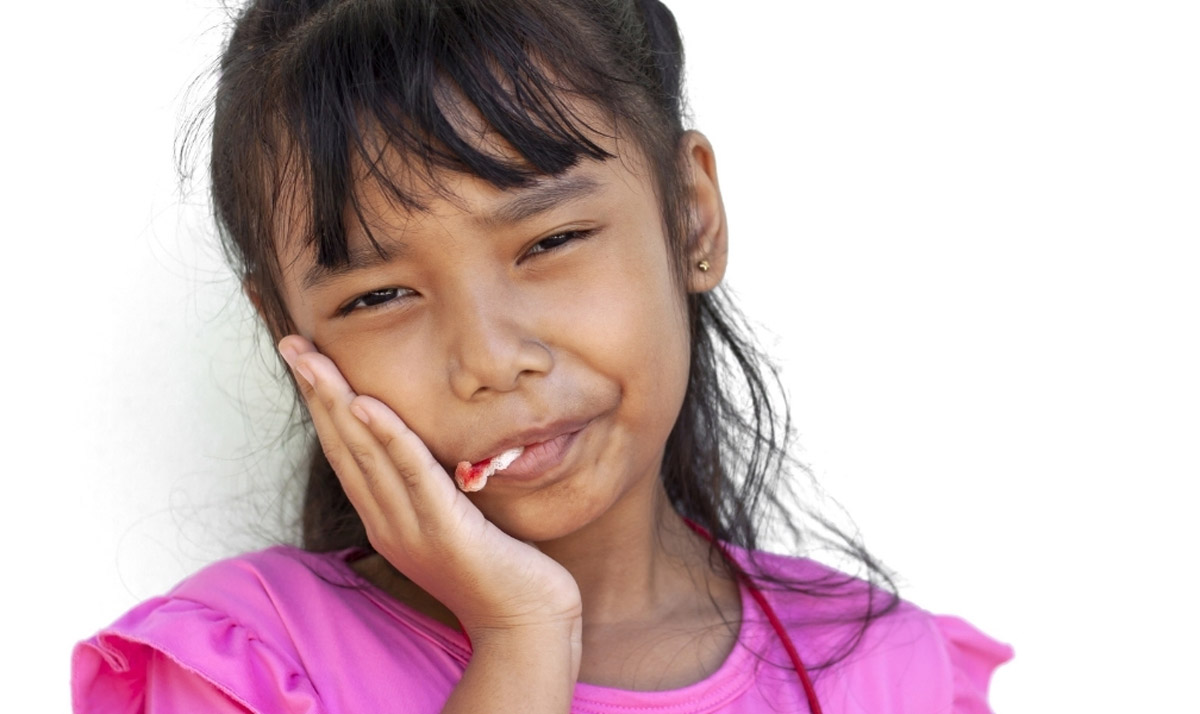
Even if it is a baby tooth, it is not good to just leave a chipped tooth alone. Timely intervention may prevent future dental problems. In cases where the chip is small enough, we may monitor how your child responds to the uneven edges on the tooth but not fix anything. Other times, the best course of action may be to simply file the jagged edges. The baby tooth will soon fall out and if it’s not causing other issues, it can be fine to leave it as is. In the case of larger chips, cracks, or fractures, Dr. Kimberly may fix them by using a special bonding material to reshape the tooth.
When a permanent tooth is chipped or cracked, it is especially important to visit the dentist as soon as possible so the tooth can be saved. Find any fragments you can – make sure there are no shards left in your child’s mouth! Save the fragment(s) and keep it moist with some milk, saline, or saliva (do not use water or yogurt!) and take it with you to your dentist’s appointment. Your dentist will examine your child first and then repair the chipped tooth with composite, similar to fixing a primary tooth.
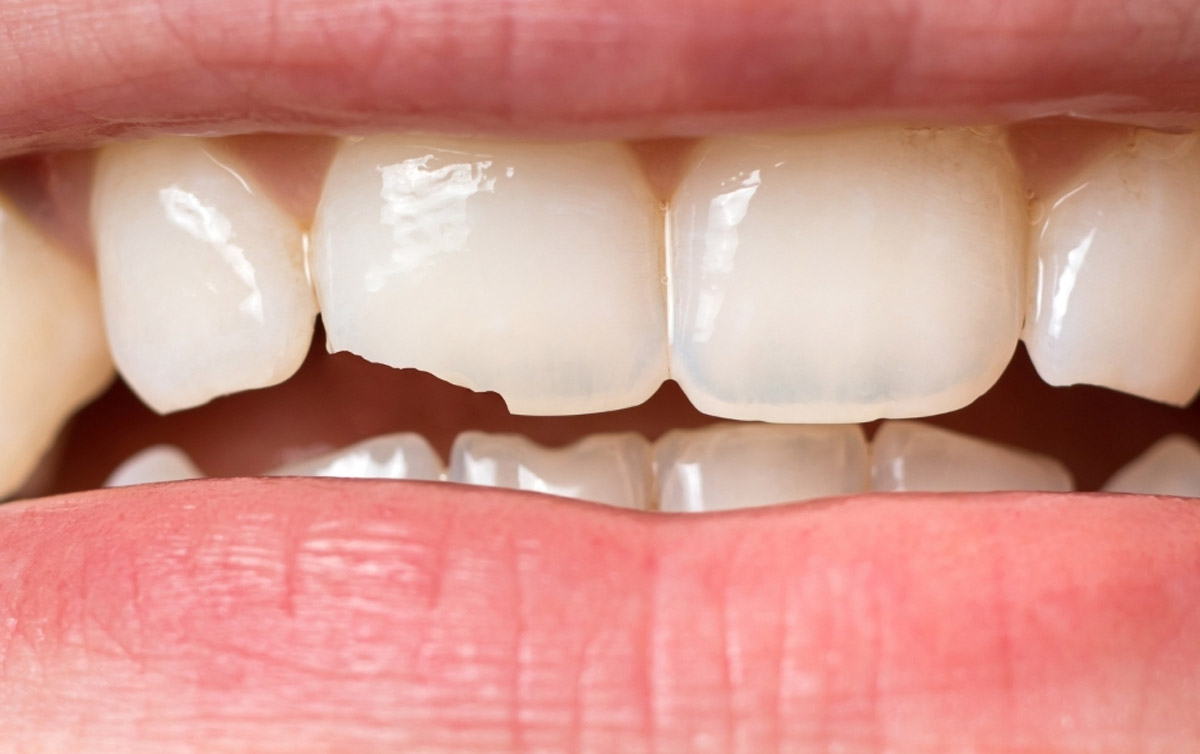
A root canal may be needed to repair the damage to the tooth’s sensitive inner core. If you’re missing a piece of the tooth that cannot be filled by a dental composite, a crown can be added to restore the tooth’s full appearance.
If the tooth is knocked out
Immediate attention is definitely needed if the tooth has been knocked out completely. Again, remain composed as much as possible. Even if it’s a baby or primary tooth, call Dr. Kimberly and she’ll let you know what to do next. When you meet with her, she can inspect the tooth and site for overall oral health. For a permanent or adult tooth, you’ll need to clean the tooth and re-secure it quickly so the socket does not close up or the tooth dies.
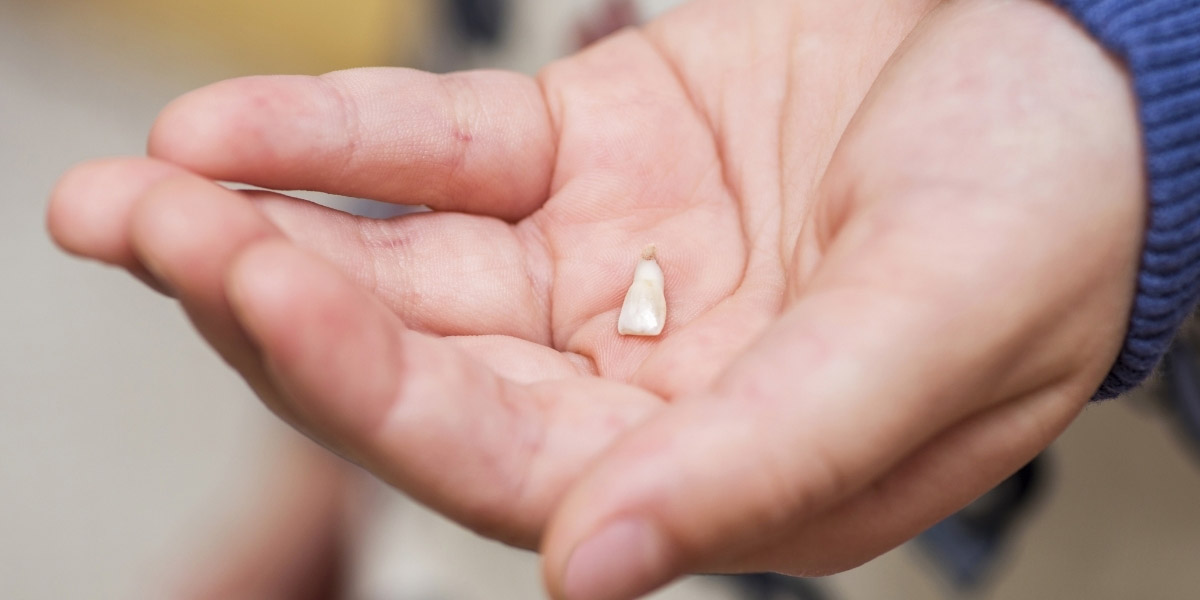
First gently clean the tooth and rinse out your child’s mouth. A salt solution is best to reduce the chance of infection. Then put the tooth back in its place as soon as possible, and hold it there with gauze or napkin while you go to the dentist’s office. You have less than an hour to reattach a tooth that has been knocked loose, in order to save it. Some wires or other dental bonding may be needed to keep the tooth in place while it heals.
If you are not able to replant the tooth at the accident site, transport the tooth in a solution, milk, or your child’s saliva so the root surface does not get dehydrated.
Dr. Kimberly will examine your child’s mouth and do everything she can to preserve and/or repair the tooth and minimize any long-term effects from the trauma. Especially after dental work, you and your child will need to take special care of the daily brushing to keep their teeth clean and healthy. They may need to stick to soft foods as well until the sensitivity and swelling goes down.
If you have any questions or are interested in creating a “dental emergency” plan in advance, give us a call.

